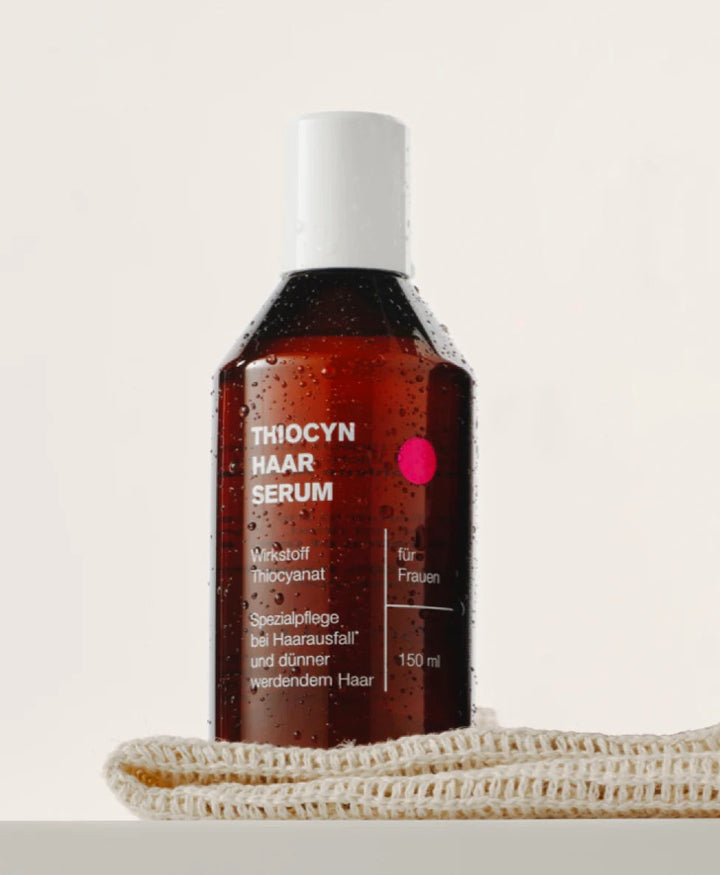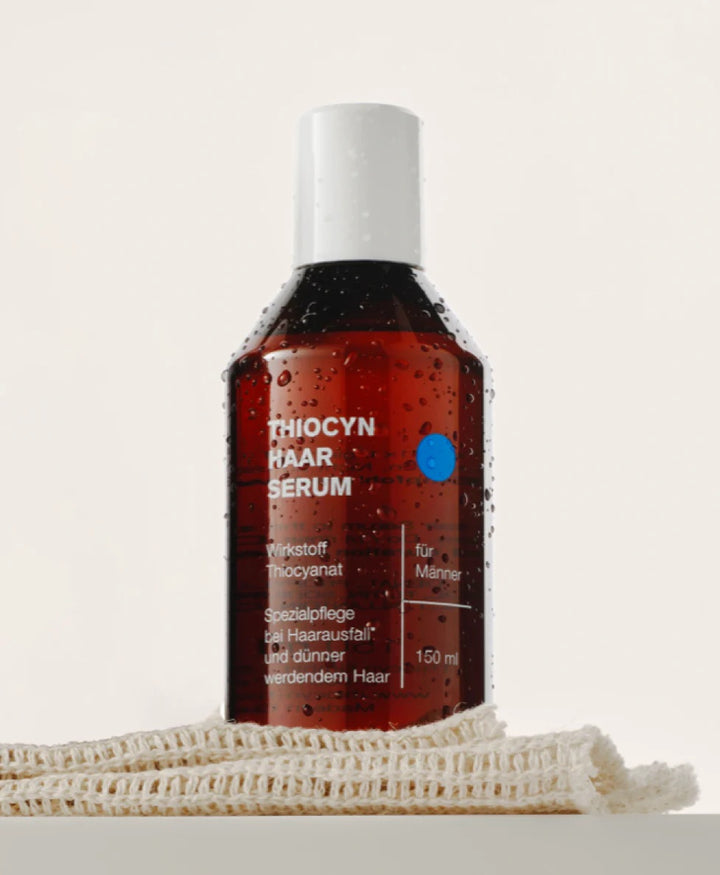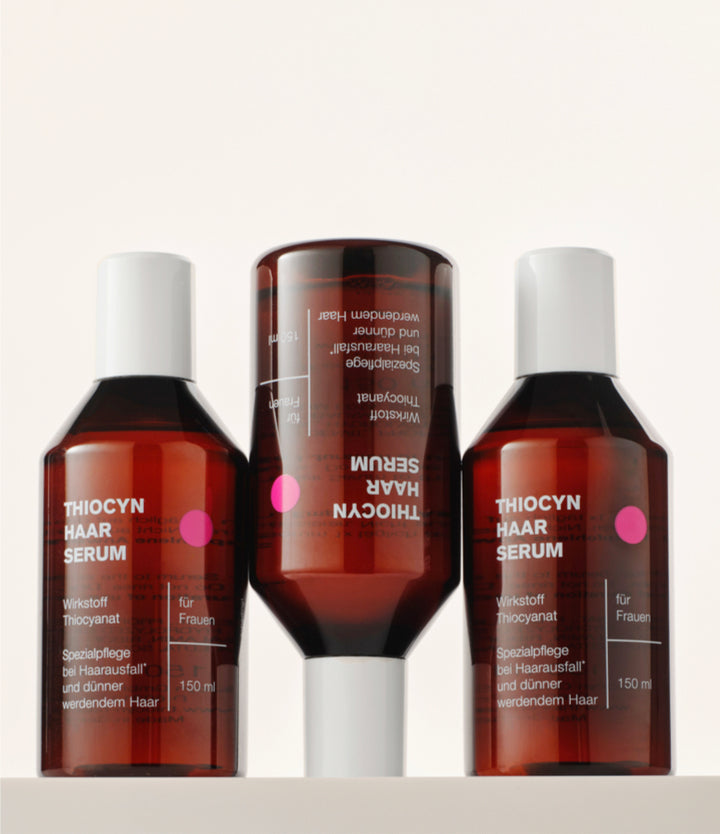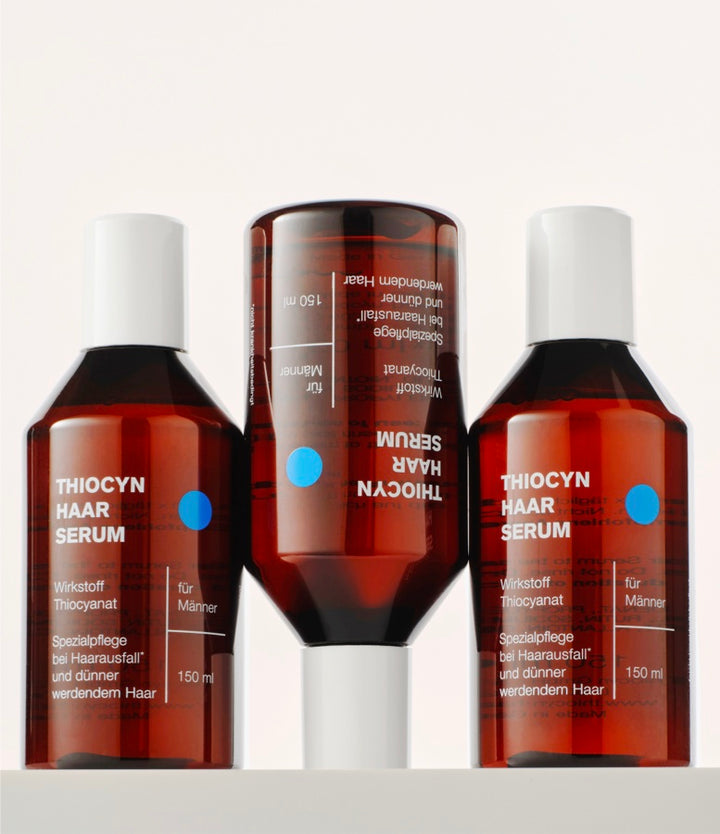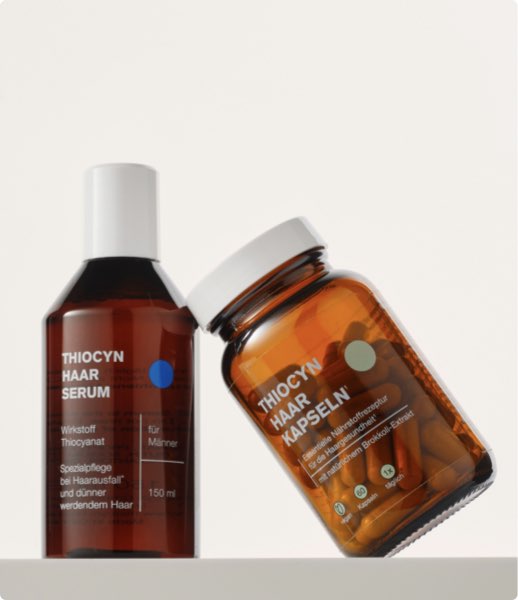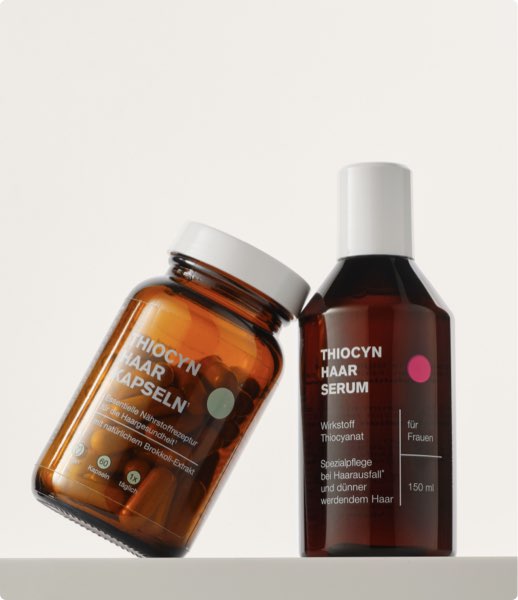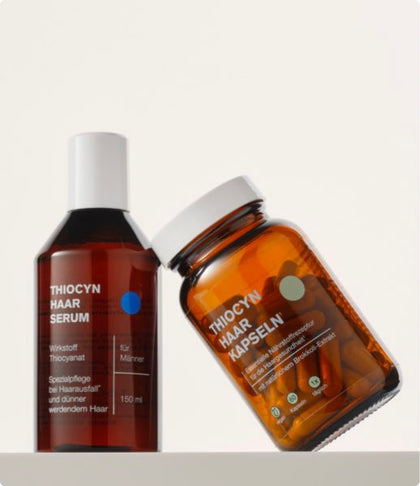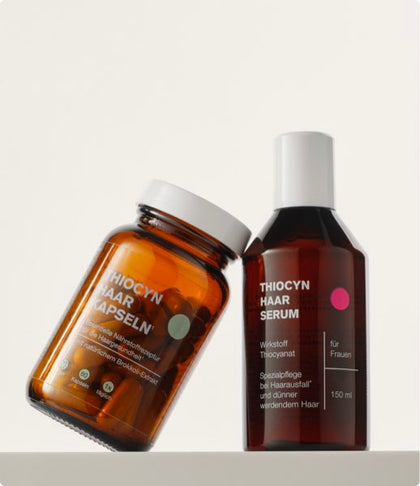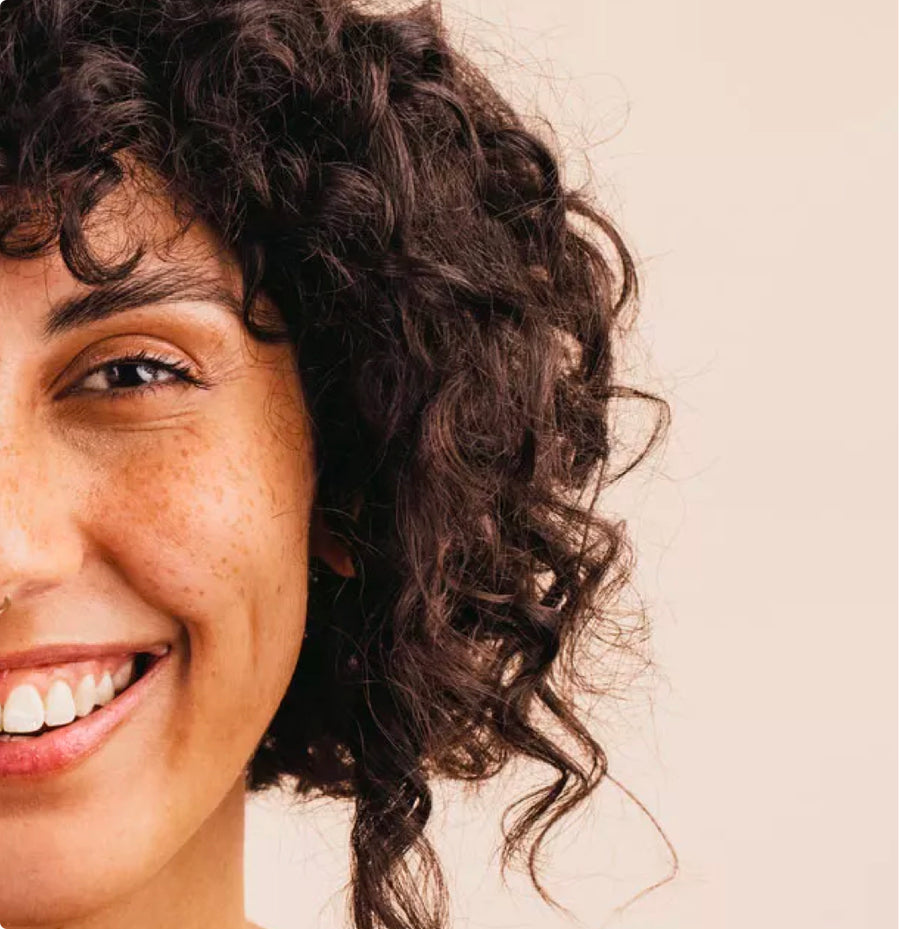HAARAUSFALL BEI FRAUEN | 10. December 2023
Hair loss* after pregnancy Insights into hormonal changes and care
Pregnancy is an exciting and transformative time in a woman's life. During these nine months, the female body undergoes significant hormonal changes that affect various aspects of the body, including hair growth. In this blog post, we'll take a closer look at post-pregnancy hair loss and how hormonal changes can affect it.
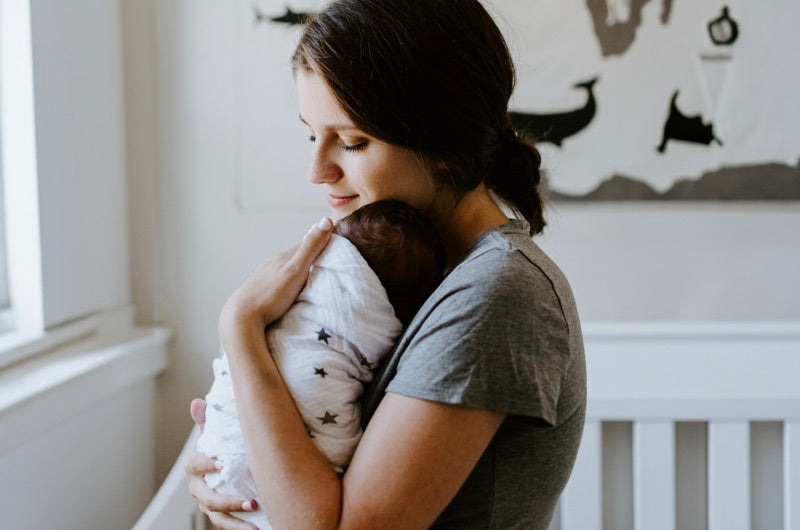
To understand why hair loss occurs after pregnancy, it's important to understand the different phases of hair growth. Hair goes through a three-phase cycle that includes the growth phase, the resting phase, and the shedding phase. Every hair on your head is in one of these phases at any given time.
Hair during pregnancy
During pregnancy, many women experience a positive change in their hair. This is due to increased estrogen levels, which lengthen the growth and resting phases of your hair cycle. As a result, less hair falls out, and your hair appears thicker and fuller. In fact, your overall hair volume can increase by about 38%.
Postpartum hair loss
After birth, what's known as "postpartum hair loss" begins. Estrogen levels gradually drop, and the hair that didn't fall out during pregnancy is shed in greater numbers. Postpartum hair loss usually occurs about three to six months after birth. If you're breastfeeding, hair loss may not occur until you begin weaning or supplement your baby's diet with solid foods or formula.
How much hair can fall out after birth?
On average, women lose up to 30% of their hair. You'll likely find more hair in your hairbrush or down the drain, especially after shampooing. Some women also notice thinning at the roots, a wider part, or a thinner ponytail. This is usually temporary and shouldn't be a cause for concern.
Can postpartum hair loss be prevented?
Unfortunately, there's no way to completely prevent postpartum hair loss, as it's a natural process. You're essentially losing the hair you didn't lose during pregnancy. However, you can take steps to minimize hair loss. A balanced diet rich in whole grains, protein, fruits, vegetables, and healthy fats can help. In addition, a wide range of hair loss remedies is available, including hair loss capsules and hair loss serums. Thiocyn's hair serum , containing the body's own active ingredient thiocyanate, supports the natural hair growth cycle and stimulates hair growth. Thiocyn's hair capsules contain important hair vitamins and trace elements. ¹ , which promote hair health and ideally complement the hair serum.
The path to recovery
Recovery from postpartum hair loss varies from person to person, but typically takes between three months and a year. You can support your hair health through a healthy diet, supplements, such as hair loss capsules, and proper hair care, such as hair loss serum.
Care tips for thicker hair after pregnancy
- Use special hair care products and hair loss remedies: Switch to products specifically designed for thinning hair to strengthen your existing hair and prevent or slow hair loss.
- Change your pillowcase: A silk or satin pillowcase is smoother than cotton and reduces friction that can lead to hair breakage.
- Comb your hair gently: Use a gentle brush and apply a leave-in conditioner before combing to protect your hair.
- Avoid heat styling tools: Heat can dry out and damage your hair. If possible, avoid hair dryers, curling irons, and flat irons.
Postpartum hair loss is a natural process that many women experience. It's important to understand that this is temporary and part of the journey to motherhood. However, with the right care and support, you can get the most out of your hair as it grows back after pregnancy. Remember, you are not alone; many women share this experience.
READ BY 23,000 PEOPLE
Join 23,000 others and find out how to improve your hair health with great offers and discounts as well as helpful advice
